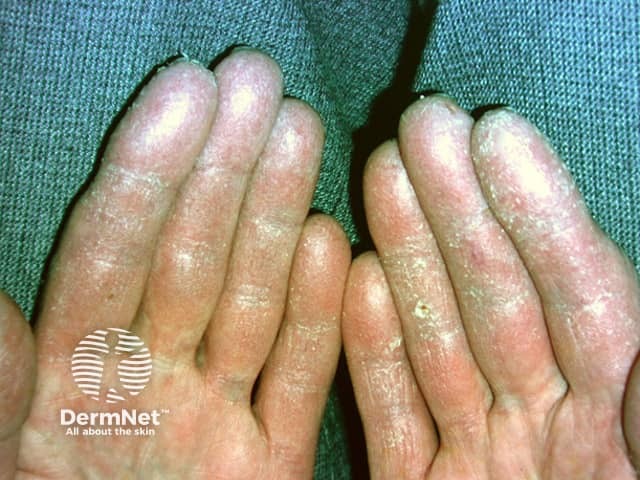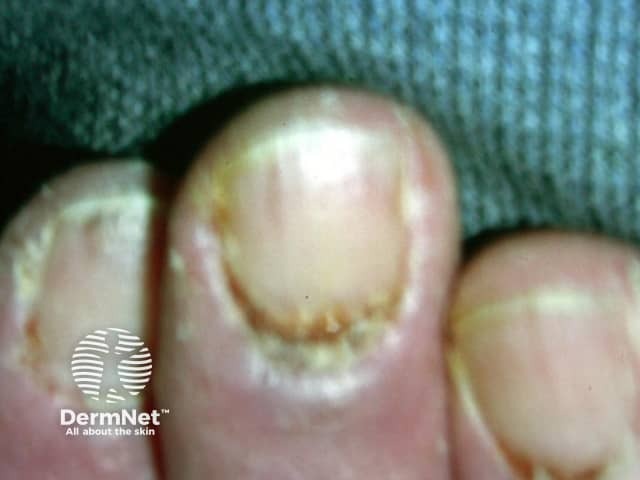Main menu
Common skin conditions

NEWS
Join DermNet PRO
Read more
Quick links
Acrokeratosis neoplastica is a rare skin condition with features rather like psoriasis. It is associated with squamous cell carcinoma of the upper respiratory or gastrointestinal tract. Acrokeratosis neoplastica is far more common in males than in females.
Acrokeratosis neoplastica is also known as ‘paraneoplastic acrokeratosis’ and ‘Bazex syndrome’ but is quite different from the genetic syndrome also called ‘Bazex syndrome’, in which there are many basal cell carcinomas.
Acrokeratosis neoplastica usually begins with scaling dermatosis of the fingers and toes that may quickly spread to the nails. Onset is sometimes quite gradual. Cutaneous features include:
Patients may have weight loss, fatigue, general malaise, and other non-specific symptoms that point towards internal malignancy.

Acrokeratosis neoplastica

Acrokeratosis neoplastica
Most cases of acrokeratosis neoplastica are due to internal cancer. The cancer is usually a squamous cell carcinoma of the upper respiratory tract or the upper gastrointestinal tract (oral cavity, pharynx, larynx, oesophagus). At diagnosis, the lymph nodes are usually already involved.
Other cancers that have been found with acrokeratosis neoplastica include squamous cell carcinoma of the thymus and vulva, anaplastic small cell carcinoma of the lung and adenocarcinoma of the uterus.
The signs and symptoms of acrokeratosis neoplastica suggest the presence of circulating antibodies to tumour antigens. The chemical messengers, cytokines, that are released by the skin and immune cells, may also play a role.
Patients with acrokeratosis neoplastica need to undergo a thorough medical and physical examination, and appropriate blood tests and X-rays to check for cancer. Acrokeratosis neoplastica may resolve if the underlying cancer is completely removed and the return of the condition may indicate relapse of underlying cancer.
Topical corticosteroids and emollient creams containing urea, lactic acid or salicylic acid, may reduce the thickness and irritation of the scaly skin lesions. Therapy with a type of vitamin D, cholecalciferol, or calcipotriol cream, has also been reported to be of benefit. Oral retinoids such as acitretin may help the cutaneous features.